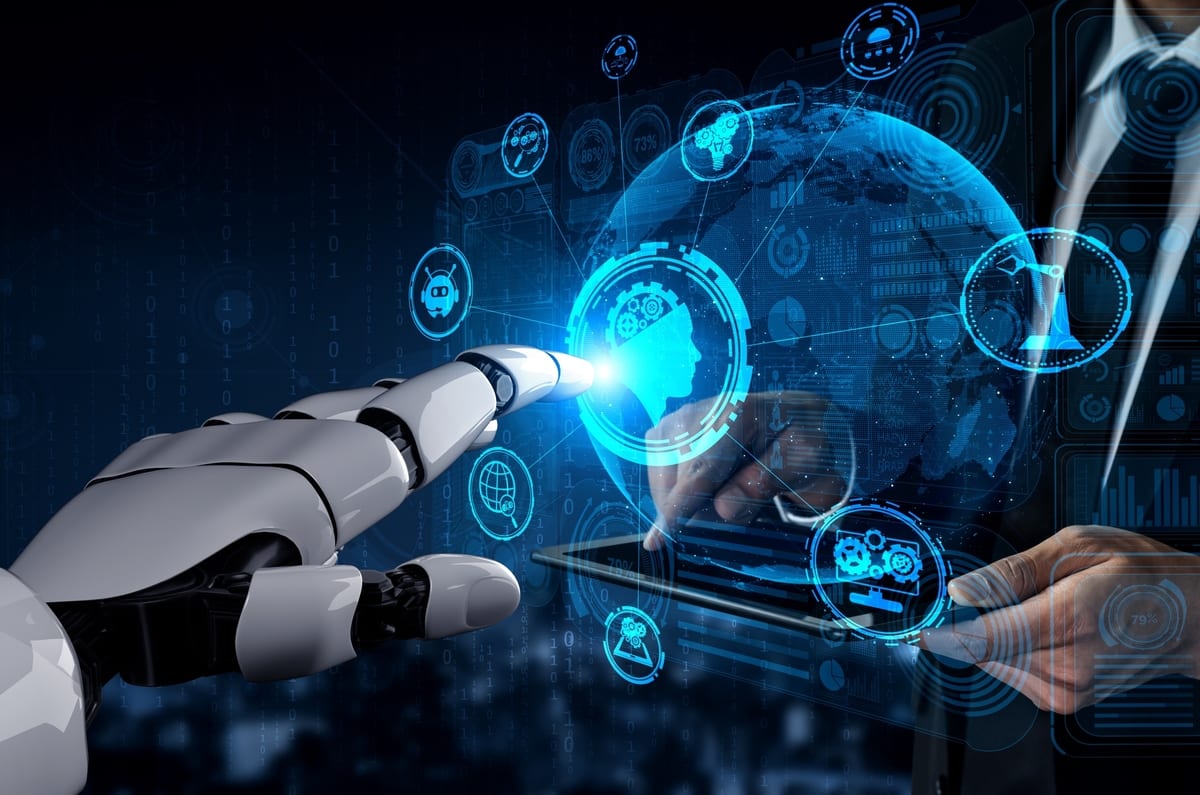Whatever your area of expertise or field of study, you have certainly heard about artificial intelligence (AI) in 2023. It is due to recent and significant advances within this type of technology that we can observe the enormous potential for transformation in various human activities.
In the field of geomarketing and market mapping, is no different.
Although still in the exploration and improvement phase, AI applications within geomarketing (GEO AI) show promise in terms of data analysis for strategic decision making, which undoubtedly arouses the interest of companies such as Linkages , as well as your customers and followers.
Keep reading this article to learn more about this disruptive technology!
Understanding the role of AI within geomarketing
Artificial intelligence intends to imitate human intelligence, which at all times collects, processes, classifies and transforms data from the environment into viable perspectives and decisions. The difference is that AI promises to be faster, more accurate and capable of analyzing volumes of data that would be physically impossible for humans.
And it is here that it attracts looks and investments from all over the world.
The most relevant relationship between AI and geomarketing happens as follows: While geomarketing is a field of study that seeks to understand consumer behavior based on georeferenced data, AI is a technology that uses data as a kind of “fuel” to generate all kinds of useful results (information, correlations, patterns, projections, etc).
In this context, we can still expect the emergence of all kinds of useful applications of artificial intelligence for the field of geomarketing.
These include predictive analysis to identify consumer trends, more precise market segmentation based on geographic characteristics, personalization of marketing campaigns with a local focus, optimization of routes for sales and distribution teams, identification from strategic locations for opening new business units, competitor analysis and geographic benchmarking, in addition to real-time monitoring of traffic flows and consumer behavior in certain regions. These applications, among other possible ones, can provide valuable insights and support for more effective strategies for all types of businesses.
The limitations and challenges of Artificial Intelligence
It is very common that, when talking about a tool so far from what we thought was the limit of technology, questions and hypothetical scenarios arise about the impacts of its long-term use. However, we understand that it is still too early to draw conclusions and that it is not up to us to analyze the tool ethically, but to identify its strengths and weaknesses.
For example, AI relies on structured and large amounts of data to perform accurate analyses, which can be a challenge in certain regions or sectors with little available information or of questionable quality. Additionally, interpreting complex geographic data and understanding cultural, social, and temporal nuances are still developing areas for AI.
This limitation underscores the importance of the human perspective, as sector professionals still need to bring their experience, intuition and ability to understand specific local contexts to compose reliable analyses.
Another challenge is the need for robust and up-to-date algorithms and AI models to deal with the complexity of geographic data and, mainly, the interactions between variables, as well as the difficulty in dealing with unstructured data, such as information from social networks or online comments (Valuable sources for analysis of feelings and opinions of consumers already used by geomarketing professionals)
THE data privacy used is also a major concern, as the use of AI requires access to sensitive consumer information, which raises questions about its storage and security. Ensuring the protection of customer data and adopting transparent practices in the collection and use of this information is essential for the acceptance of AI-based geomarketing solutions, but it is still a path to be followed.
Our vision of the future

In conclusion, it is evident that artificial intelligence has significant potential to revolutionize human activities as a whole. However, in light of discussions about this technology, it is critical to recognize that human potential remains and will continue to be essential.
We believe that it is from the combination of AI with human expertise that the approach becomes more complete and refined, taking advantage of the strengths of each component to support more assertive decisions.
THE Links is excited about the arrival of new technologies that amplify the quality of its work and offer even more accurate insights for its clients.
Artificial Intelligence promises to be a powerful ally on our path to the future.




